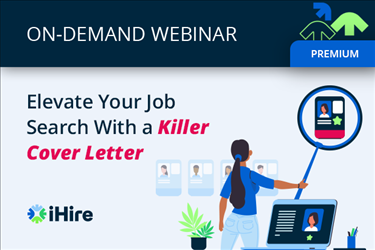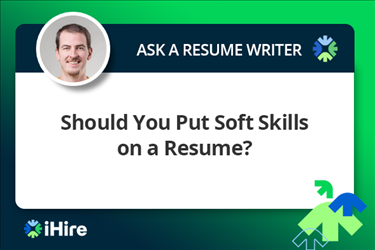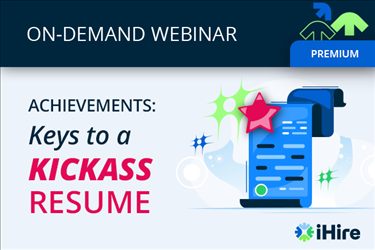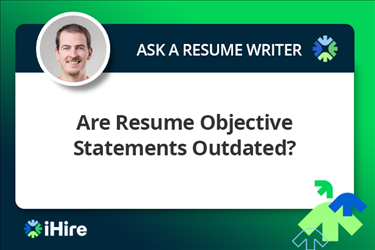- Job Seeker Resources
- |
- Last Updated: May 12, 2021

How to Make Your Career Change Resume Unstoppable
Breaking into an unfamiliar industry can be time-consuming and confusing. Even after you’ve taken courses to build your knowledge and formed a new professional network to support you in your budding career, convincing hiring managers to choose you over candidates with work experience in the sector can be tricky.
With the right strategies, however, you can position yourself just as well (or better!) as other job seekers. To find out how to write a resume for a career change that will show off what you can bring to the table, check out the tips and tricks below.
Choose Your Resume Format
The best strategies for transitioning to a new industry are the functional and hybrid formats. These two approaches allow you to keep the employer’s sights on your skills and the value you bring to the organization beyond your (somewhat unrelated) professional, paid experience. Use the career change resume examples below to decide which of the two routes is right for you.
Functional: this style is best for job seekers making a dramatic shift. If few to none of your prior responsibilities are similar to those you’ll be expected to take on in your new career, this is the resume format for you. With this style, you highlight competencies you’ve gained from all types of situations and environments in a “Selected Accomplishments” or “Talents & Value” section, rather than restricting yourself to your paid background. Here is one functional resume sample for career change purposes:
Hybrid: If some of the tasks you completed regularly have given you a basis for your future duties, a hybrid resume is a good choice. This structure provides you a section to highlight your skills and abilities first, while briefly describing the relevant details of your previous jobs in the following section. Here is an example of a hybrid resume written for a career changer:
Begin with a General Resume
Because you are new to this portion of the workforce, you don’t want to start with a highly tailored resume. You are better off writing a general resume that you refine and customize for specific positions as you apply, than committing to one specific type of role. Keep this initial document flexible and broad so that you can edit it to fit numerous positions as you come across ads you think you’re a good match for.

Don’t Be Afraid to Highlight Unpaid Experience
You’re most likely to spot this highly popular strategy in entry-level and career change resume examples. Even without a paid background in your prospective industry, there are plenty of ways to get involved and integrate relevant experience into your resume. Volunteering for a nonprofit, for example, is a great way to build a professional network and develop necessary skills before you make a career change.
You can also add any courses or training you’ve taken to prepare yourself for your new occupation. Including your education will not only reassure employers that you’ve committed to your career change and have the knowledge you need to succeed, but also that you are proactive and willing to learn.
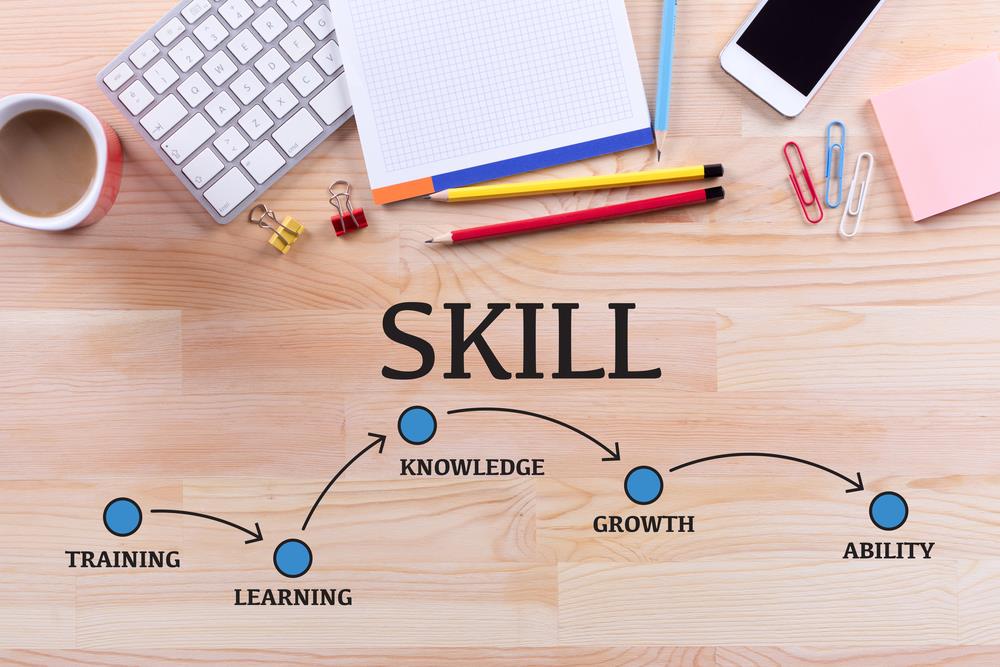
Focus on Skills
If you’ve done any research on how to write a resume for a career change, you’ve probably come across the phrase “transferable skills.” These are the abilities you will use in your new job, even though you originally learned them while working in a different sector. As you can see in the above functional resume sample, for career changes, these competences are front-and-center. Unlike other candidates applying for this position, you do not have relevant paid experience. However, you do have the necessary skills—which your resume must demonstrate.
Register with iHire and find a career you'll love!
Keep it Relevant
Remember to keep the focus on what will matter to hiring managers in your new industry. What was impressive to others in your previous industry may not be nearly so important in your new sector. A career changer moving from the hospitality industry into logistics, for example, will be much better served with phrases like “Managed scheduling and supplies for highly attended national conference” than “Consistently ranked in top 3 for occupancy, ADR, and RevPAR within compset throughout renovation phase.”
You also need to eliminate any jargon specific to your previous industry from your resume. Terms like “Class II drugs” are familiar to those in medical professions, but not to those in other areas. When you’re unsure whether a term is well known to people in other occupations, ask a friend or family member to look it over. Remember: don’t get bogged down in the details. You’re writing a general resume that demonstrates that you have a foundation to work from in your new career, not to prove you’re an expert in your previous industry.
Once you’ve written your resume, don’t forget to use iScore Resume Match to ensure that you’ve included the major keywords you need to get your materials past the applicant tracking system and into human hands. Struggling to make your resume truly reflect what you have to offer future employers? Try iHire’s Resume Writing Services for professional help crafting a hard-hitting career change document and land your dream job!
Sign In or Register to access all articles and insider tips for help in your job search.
Search for iHire Jobs
RELATED JOBS
RELATED RESOURCES
Find the Right Job Faster
- Get personalized job matches sent to your inbox every day
- Connect directly with employers before your competition
- Advance your career with expert advice on interviewing, salary negotiation, and more
We value your privacy

